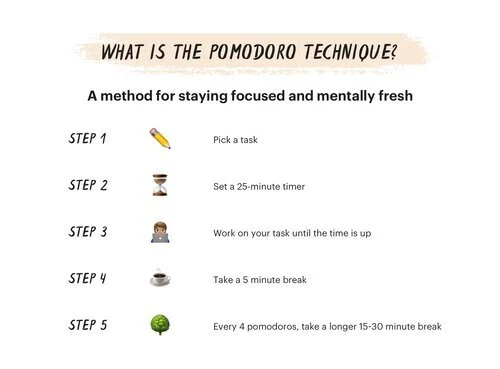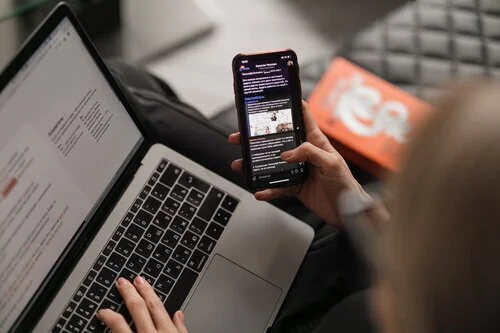The 10 hacks you need to transform your productivity
Feeling overwhelmed by this week’s to-do list? You’re not the only one.
As an executive director, you’re pretty much always pulled in a hundred different directions. Fundraising, social media, volunteers—oh my. The days speed by and your priorities keep getting pushed back to put out fires. But it doesn’t have to be this way.
In this debut podcast, I’m dishing out the top 10 hacks you need to transform your productivity. Spoiler alert: they are simple and easy to implement!
How to transform your productivity
Like all things nonprofit-related: productivity is a process. I want these tips to be the opposite of overwhelming for you. (You’re in this for the long haul, remember?). So no need to try ten new tactics tomorrow. Instead, I’d recommend trying one at a time.
Alright here we go. Ten productivity hacks coming your way:
1. Turn off all notifications.
When I say turn off all notifications, I mean ALL notifications. Notifications are distractions. Bottom line. They’re taking away from our productivity and we don’t even realize it.
Did you know executives get around 46 notifications a day? That’s a lot of distractions. Even if you feel like it’s only a few seconds here and there, your brain takes a bit more time to jump back into your task after being pulled away. Plus, getting pinged all day adds to your stress.
When I turned off my notifications, I felt a shift in my anxiety (which is to say I didn’t have any). It was glorious. I wasn’t being pulled in a hundred directions. I was choosing exactly where to focus my attention. So hit that “Do Not Disturb” button. Don’t let push notifications distract you from tackling your to-do list.
2. Start your workday with a clean workspace.
Every night, I try to dedicate time to clean up my workspace so I come back refreshed in the morning. A clean desk means a clear mind. Get your workspace feeling decluttered, organized, and ready for the day.
This goes for your digital workspace, too. According to Harvard Business Review, people lose up to two hours a week searching for digital documents and files. (Maybe a good reminder to reorganize the dark void—I mean Google Drive).
3. Write down your to-do list for the day.
Do you wake up and immediately stress about everything you have to get done today?
I don’t know about you, but my natural default is to jump right into work. I gotta check my emails, send that thank you note, plan this week’s content. It’s always go-go-go— when really I just need to free up some mental energy and take time to prioritize.
Write down all your to-dos. They’re taking precious space in your brain that you could be using to strategize, complete more tasks, and finish everything sooner to head out early for the weekend.
“You know you’re going to forget something. Get it written down.”
4. Prioritize.
Once all your to-dos are listed out, take time to prioritize. You’ll quickly realize what’s a “tomorrow” problem vs. what’s a “next week” problem vs. what needs to be done today.
From the 1-3-5 rule to the Eisenhower Matrix to the GTD approach, there are so many different ways to approach prioritizing from here. What’s my go-to prioritization hack? Picking two or three major tasks for the day.
Then, here’s what you can do with your secondary tasks:
Drop tasks into your project management system.
Schedule tasks for later in the week.
Delegate, delegate, delegate.
“Be realistic about what you can actually get done in a day.”
5. Tackle the hardest task first.
This is a hard one for me. I’ll spend all day avoiding something because I think it’ll be really hard or time-consuming—and then I am annoyed with myself because it only takes me ten minutes.
Just do the thing. Get it checked off your list. Doing the hardest thing first gives you the motivation to finish your other tasks.
6. Set a timer.
For those days you’re really procrastinating, try using a timer. Get competitive with yourself and see if you can get the task done before the alarm rings.
One tip: try the Pomodoro technique. With the Pomodoro technique, you set your timer for 25 minutes and focus on one task, then you take a five-minute break before the next.
Source: todoist
Another tip: decide how long you want to spend on something. I set a timer when I’m checking my email so I don’t spend all day in my inbox. Setting a timer comes in handy when you know you’re spending too much time on any given task.
7. Only check your email 2-3 times a day.
The average worker spends 28% of their time managing email. In a forty-hour workweek, that’s over 11 hours living in your inbox. Holy smokes. I don’t know about you but I’d love to be prospecting for 10 hours instead of managing emails.
This might feel uncomfortable. I get it. But sometimes I realize that I’ve had my email open up as one of those tabs and I am constantly switching from tab to tab. I end up spending all this extra time looking at my email but not being intentional about what I’m actually doing. Those are the days I get nothing done.
Your email is FULL of other people’s priorities. Check only a couple of times a day so you can focus on those big priorities that’ll move your mission forward.
8. Create goals and write them down.
Create quarterly goals and then break them out into bite-sized chunks. Then, if something doesn’t align with your quarter goals, you know so say NO to something if it isn’t matching up. Set 1-3 goals each quarter and check back each month to see how you’re progressing.
9. Systematize the tasks you do on a regular basis.
What are recurring tasks that help you run your nonprofit? Whether it’s every other day, every week, every month—if you’re doing the same task over and over again: systematize it.
Write down the steps to make the task happen and either outsource it or write it down somewhere, whether that’s scheduling in your calendar or placing it in your project management system. Now, you won’t have to remember the recurring tasks every day/week/month. It’ll be on autopilot.
10. Listen to a productivity podcast.
On your next walk, grocery store run, or workout, listen to a podcast that pumps you up. Yep, I am 100% biased on this one. But after years of listening to podcasts and feeling inspired, I stand by it. Listening to podcasts motivates me to try something new or think about something differently.
Reward yourself with a podcast break to re-energize you and help you get back to work with a new perspective.
Get into the productivity mindset
Taking your organization to the next level means optimizing your processes to get stuff done. Just remember, growth is gradual, so give yourself time to tweak and refine. And start small today! (Your nonprofit will thank you!).





